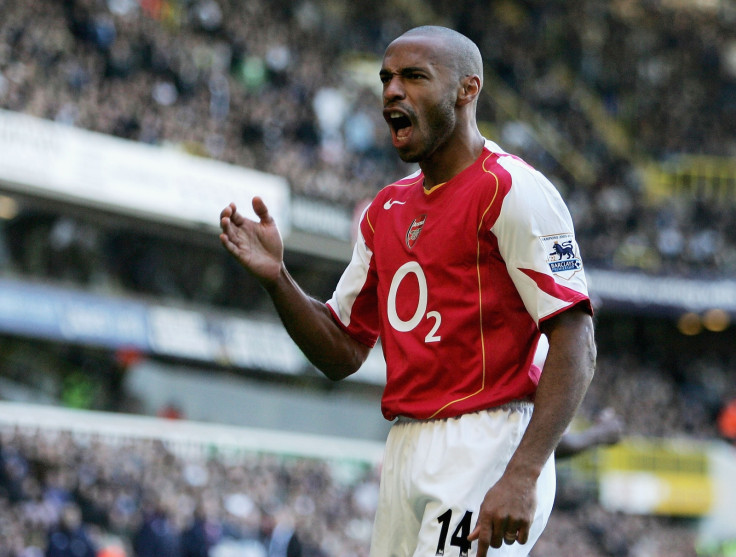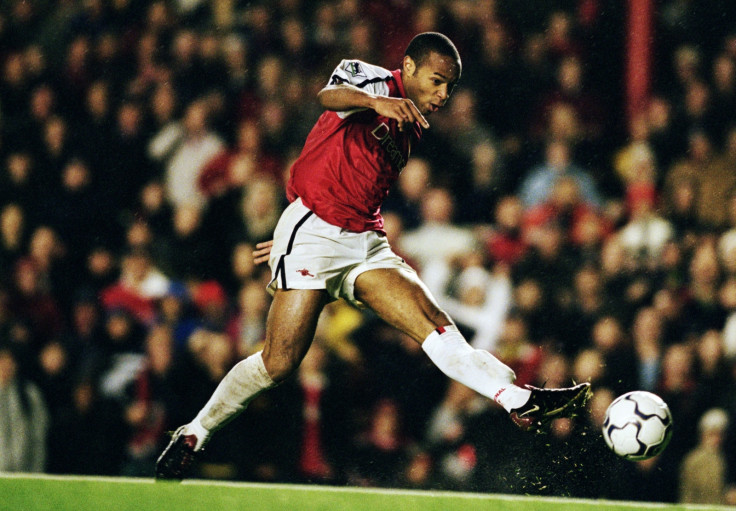Thierry Henry: The legacy of the Arsenal hero who remains British football's greatest-ever striker

Thierry Henry may have called time on his Premier League career seven years ago, but his presence on these shores is still felt. Not just in the red half of north London, either.
The sight of the lanky Frenchman arriving at Highbury to replace Nicolas Anelka, then regarded as one of the brightest young forwards in world football, was initially met with quizzical looks, reactions Arsene Wenger is likely to have grown accustomed to over the years when welcoming new players to the club.
Henry's fairly uninspiring start to life as a Gunner – his wait for a first goal lasted eight games - did not help, but those early perceptions were soon dismissed. The Parisian, then a winger by trade, evolved into the most fierce striker of the Premier League era.
In his pomp, there was nothing more ominous for the opposition than the sight of him cutting in from the left. The question of whether or not he would score became fairly redundant; a matter of not if but when, and how often, before the mercy of the final whistle.
While his handball in that World Cup playoff against the Republic of Ireland soured his image somewhat, Henry the Premier League player was largely infallible. While Ruud van Nistelrooy diligently kept up with him in the Premier League's goal scoring charts, Henry's were scored with such variety and panache that he was elevated to a transcendent level the Dutchman could not keep up with.
In numbers, Henry prevailed anyway. He scooped the league's top scorer award on four occasions – three of those consecutively – en route to being crowned the Football Writers Player of Year three times between 2001 and 2006.

There are elements of Henry's role in the Premier League that may fall short when considering who is the greatest to ever grace it. Eric Cantona's mercurial presence influenced the most successful generation of players to emerge in the Premier League's era. Dennis Bergkamp, more than Henry, was the on-pitch inspiration who revolutionised Arsenal's brand of football and created a style which many believe is the best ever seen on these shores.
Alan Shearer remains the most prolific figure to score goals on English soil while Cristiano Ronaldo stands as the only English-based player to win football's single greatest personal accolade in the Premier League era.
Henry took his place alongside those greats, but perhaps most crucially he enchanted one of the greatest teams of the Premier League era. He struck 39 league goals in the Invincibles season – the period when he was at the very peak of his powers. What he did for Arsenal when they were so ruthlessly at those heights bordered on the mystical as a matter of routine.
He was a weekly highlight reel, leaving goalkeepers and defenders at a loss as to what to expect next. The backheel against Charlton, the flicked volley against Manchester United, the mesmerising runs against Tottenham Hotspur and Liverpool would have been unbelievable, had you not become used to having your perceptions of normality shattered by the Frenchman.
Players such as Luis Suarez and Sergio Aguero have come to epitomise the all-conquering Premier League forward, the individual who scores, creates, inspires and delights in equal measure. Henry remains the modern prototype for that, and one who is unlikely to ever be eclipsed, something that ensures he remains an unremitting icon of the English game.
© Copyright IBTimes 2025. All rights reserved.






















